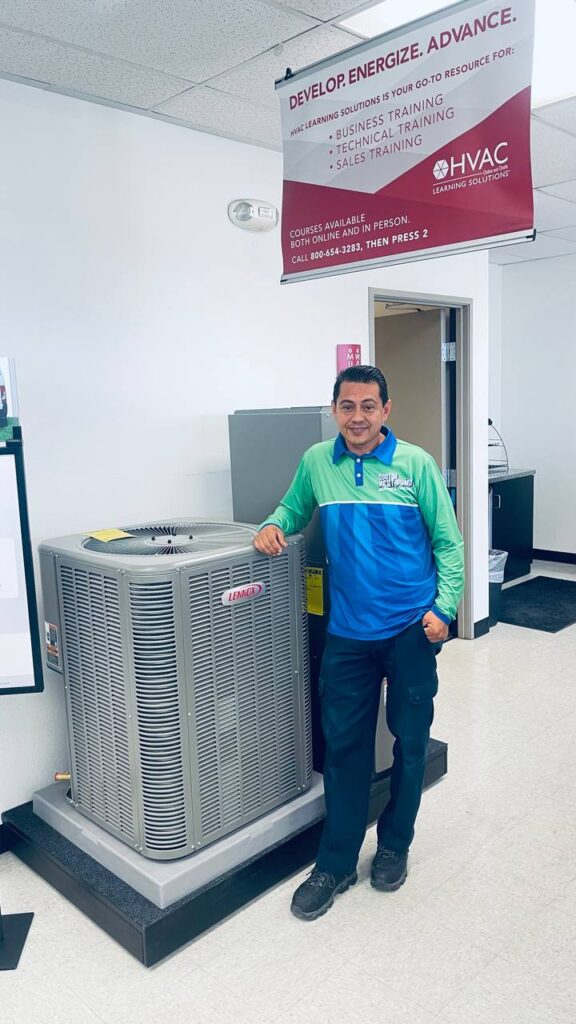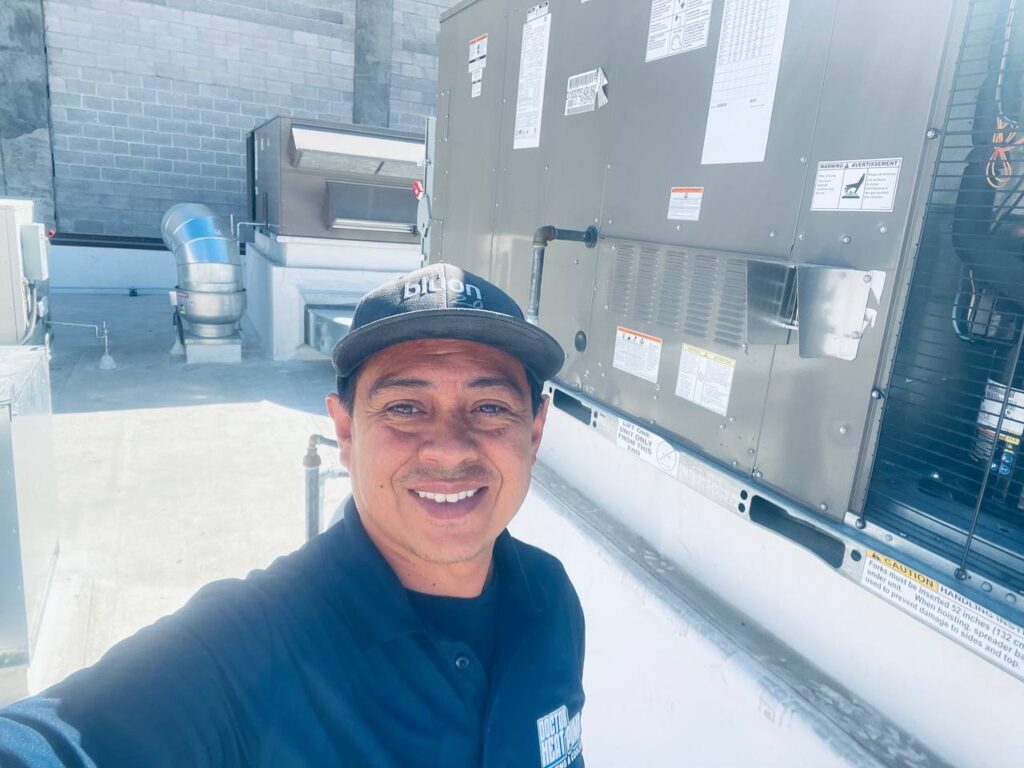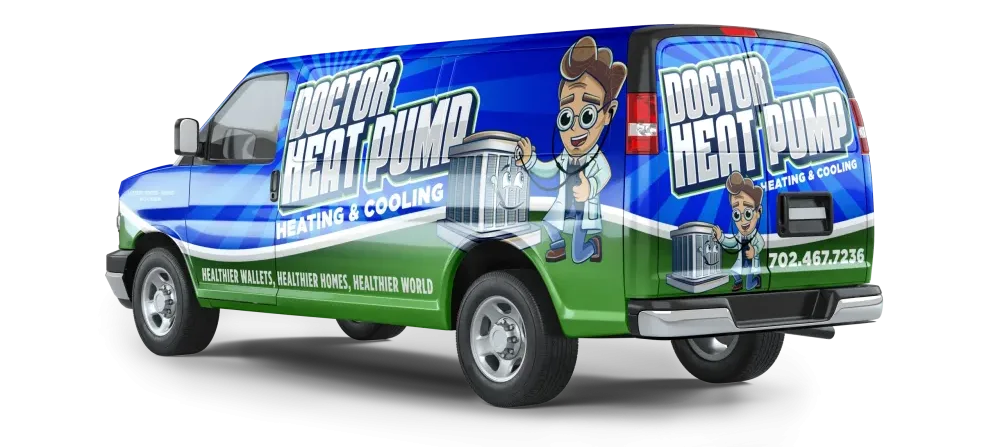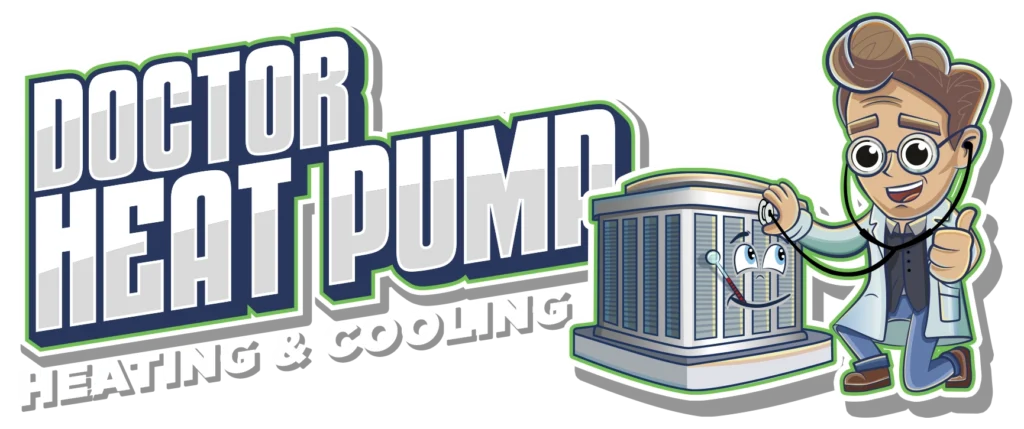Doctor Heat Pump HVAC FAQ's
Find answers to the most commonly asked questions about our services!
Doctor Heat Pump HVAC FAQ
HVAC stands for Heating, Ventilation, and Air Conditioning. It refers to the systems used in buildings and homes to regulate indoor temperature, humidity, and air quality to ensure comfort and healthy living conditions.
We recommend servicing your HVAC system at least once a year. Heating systems should be checked in the fall and air conditioning systems in the spring to ensure they are operating efficiently and ready for the coming season.
Common signs include unusual noises, weak airflow, thermostat issues, bad odors, and an unexpected increase in energy bills. If you notice any of these issues, it’s best to call a professional to inspect your system.
The lifespan of an HVAC system varies based on its type, brand, and usage, but on average, you can expect a well-maintained system to last about 15-20 years. Regular maintenance can significantly extend your system’s life.
Yes, there are several maintenance tasks you can perform yourself, such as changing or cleaning air filters every 1-3 months, checking and clearing the AC condensate drain line, and keeping the HVAC unit free of debris. However, more technical tasks should be left to professionals.
SEER stands for Seasonal Energy Efficiency Ratio. It measures air conditioning and heat pump cooling efficiency, which is calculated by the cooling output divided by the total electric energy input during the same period. A higher SEER rating means greater energy efficiency.
This can happen for several reasons including restricted airflow, low refrigerant levels, or issues with the thermostat. If your system is freezing up, it’s advisable to turn it off and call a professional for a thorough inspection.
A heat pump provides both heating and cooling by moving heat in or out of your home, depending on the season. A traditional furnace, on the other hand, generates heat by burning fuel or using electric resistance. Heat pumps are generally more energy-efficient and cost-effective in mild climates.
Consider factors like the size of your space, the efficiency of the system (SEER and AFUE ratings), your budget, and the climate in your area. It’s also crucial to choose a reliable service provider for proper installation.
Improving your system’s efficiency with regular maintenance, upgrading to a high-efficiency system, using programmable thermostats, and ensuring your home is well-insulated are effective ways to reduce operating costs.
An HVAC zoning system allows you to divide your home into different zones, each controlled independently with its thermostat. This system can significantly improve comfort and efficiency by heating or cooling only the areas that need it.
AFUE stands for Annual Fuel Utilization Efficiency, and it measures a gas furnace’s efficiency in converting fuel to energy. A higher AFUE percentage indicates a more efficient furnace, with less wasted fuel.
Improving indoor air quality can be achieved by regularly replacing HVAC filters, installing air purifiers or cleaners, maintaining proper humidity levels, and ensuring adequate ventilation to reduce pollutants and allergens.
Noise issues may be due to loose parts, debris in the vents, issues with the fan or blower, or an aging system that needs repair or replacement. It’s best to have a professional diagnose and remedy the problem to prevent further damage.
Ductless mini-split systems are HVAC systems that do not require ductwork. They consist of an outdoor compressor/condenser and one or more indoor air-handling units. These systems are ideal for room additions, small apartments, or spaces where installing ductwork is impractical.
If your HVAC system starts leaking water, turn it off immediately to prevent damage to your home. A common cause is a clogged condensate drain line or a damaged drain pan. Check your air filter as well — a dirty filter can cause coils to freeze and later leak.
It’s best to contact a licensed HVAC technician to inspect and fix the issue properly. Ignoring the leak can lead to mold growth, water damage, or even system failure.
High humidity levels can make your HVAC system work harder to cool your home, reducing efficiency and comfort. Using dehumidifiers and maintaining your AC properly can help manage humidity levels and improve system performance.
The ideal thermostat setting for winter is around 68°F while you’re at home and lower when you’re asleep or away from home. This helps to save on heating costs while maintaining comfort.
Air ducts should be inspected and cleaned every 3-5 years to remove dust, debris, and potential mold. This improves your HVAC system’s efficiency and the quality of your indoor air.
Yes, installing a smart thermostat can lead to significant savings on your energy bills. These devices allow for more precise control over your HVAC system, learning your schedule and preferences to optimize heating and cooling patterns accordingly.


About Us
Welcome to Doctor Heat Pump, formerly Atlantic Heating and Air, where our journey began in 2015 with a commitment to innovation and specialized home comfort solutions. Unlike many contractors who remained generalists, we embraced a specialized approach in heat pump technologies, aiming to deliver optimal heating and cooling for homes.
As the demand for sustainable, energy-efficient solutions grew, we focused on high-efficiency heat pumps that reduce carbon emissions and improve system performance. This dedication led to our rebranding to Doctor Heat Pump in 2023, reflecting our commitment to a cleaner, greener future.
We pride ourselves on our expertise in heat pump systems, offering tailored solutions to meet the unique needs of each home. Our team stays at the forefront of heat pump technology, ensuring maximum energy efficiency, reduced consumption, and minimal environmental impact.
By choosing Doctor Heat Pump, you’re investing in both your home’s comfort and the health of our planet. Join us in shaping a cleaner, more sustainable world through energy-efficient heating and cooling solutions.
Our Journey
At the age of 21, I began my journey in the world of Heating and Air, driven by a desire to learn and make a difference. Over the years, I realized that many HVAC companies prioritized profits over education and craftsmanship, which led me to start my own company in 2015. My goal was simple: to provide superior service with a focus on better education, cleaner air, and optimal system performance.
As I delved deeper into the field, I discovered the transformative potential of Heat Pumps, which outperformed traditional systems. Realizing the world was moving toward greener, more sustainable solutions, I decided to specialize in high-efficiency Heat Pump technologies. This led to the birth of Doctor Heat Pump.
At Doctor Heat Pump, our expert team offers a range of Heat Pump solutions designed for maximum efficiency, cleaner air, and sustainability. We’re not just providing a service; we’re creating comfortable, eco-friendly homes while shaping a brighter future for the environment.

- We're proud to serve multiple cities and be one of Nevada's most trusted AC installation and HVAC repair and maintenance companies.
- Feel free to find your nearest location or keep browsing to discover more about our services, exclusive offers, AC maintenance tips, and financing options.
- For help, schedule service online or call today.


